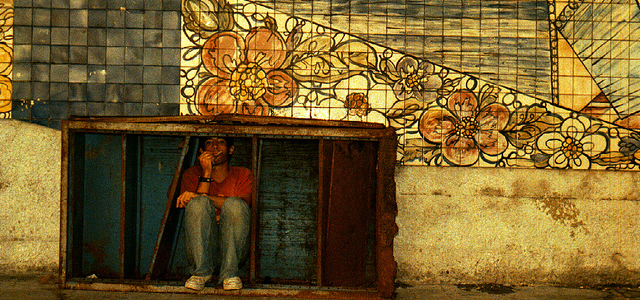
Many international media have been full of articles about how Cuba is changing. While this is true and there have been some changes that bring Cuba closer to its Latin American neighbors, Cubans still miss on many things that are quite normal in the rest of the region. Ten things that most Cuban’s still cannot do include:
- Earn Fair Wage
The salaries in the last decade have risen by about 50%. However as the percentage of salaries rose the list of the things Cubans can get on their ration card got shorter and it currently offers food worth only about $2 a month. According to Cuban Statistical office the average salary of Cuban in 2014 was $22 dollars a month. It is hard to survive on this salary even taking into account that education and healthcare are free on the island.
- Access the Internet
Only top Cuban elite has slow 56kbp telephone modems at home and it was only in June of last year that the government opened first public wifi spots around the country that support acceptable speeds of 1Mbit per user. However less than 50 hotspots around the country are certainly not sufficient for the population of more than 11 million and the cost of $2 dollars per hour keeps internet out of reach of majority of the population.
- Read Free Press
While a lot has been written about Cuban bloggers, due to the low internet penetration their impact inside Cuba remains limited. Very little has changed on the media market where all dailies, radios and tv stations are owned by the state and controlled by the Communist Party of Cuba. Not only access to printing press is limited, but business quality printers are hard to come by and one of the first independent newspapers 14ymedio.com is blocked on the Cuban internet.
- Start a Business
There is a new investment law in Cuba, but ironically it might be easier for a foreign investor to open a business in Cuba that it is for Cubans. Although many Cubans can now open their homes to tourists for accommodation or open a tiny restaurant, the list of activities where private enterprise is permitted is very limited and even activities such as sale of used clothes is not included not to mention import, export, tourism and other possibly lucrative business where state wants to keep its monopoly.
- Organize
In every single Latin American country some sort of independent civil society exists and is recognized by the state. Not so in Cuba where –with the exception of some Church groups– not a single Cuban independent non-governmental organization obtained a registration. There are hundreds of these groups, but they have no access to office space or funds as they would have anywhere else in the region.
- Strike
In Cuba the right to strike is not outlawed, but the law does not guarantee the right to strike either. In spite of the fact that number of independent trade unions exist, they are all illegal and the only trade union allowed to function is the Federation of Cuban Workers directly controlled by the Communist Party of Cuba.
- Travel Freely
In 2013 the Cuban government lifted the need to obtain an exit visa and since then in theory any Cuban can travel abroad. In practice this is out of reach for majority of Cubans who would have to save number of years of average salary to be able to afford a plane ticket, and more importantly, many of them face interrogations and harassment by the authorities upon their return.
- Protest in the Streets
Street protests are regular occurrence all over Latin America and, although Cuban government often supports these protesters and their demands around the world, it does not permit any visible protest anywhere in Cuba. Known trouble makers are preventively put in jail or in house arrest even before they have a chance to organize especially before high profile public events. Small groups that, in spite of constant government vigilance succeed in marching in the street, are promptly arrested or beaten.
- Get a Fair Trial
Neither Cubans or foreign nationals can be assured that their trial in Cuba will be fair. Judges are directly controlled by the government, there are no independent legal firms and all attorneys have to be employees of the state. While there are groups of Cuban independent lawyers, they are not allowed to practice independently or represent anyone in court. Many detainees spend years in jail waiting for sentence that is never handed down.
- Vote Freely
While elections take place regularly these are neither free or fair. The Communist Party is the only legal political party in Cuba, even though parties across the political spectrum requested registration, it was never granted to them. In addition, no independent candidate has a chance to be elected for a meaningful post in the current electoral system.

Leave a comment